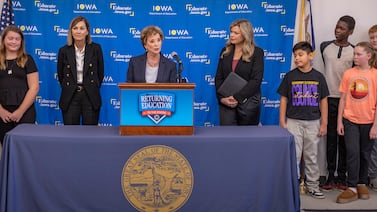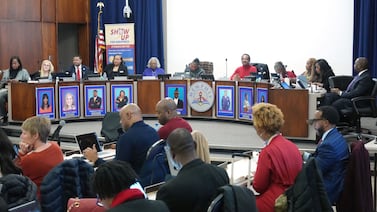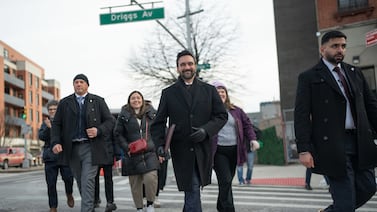Most Americans think that public schools should provide free breakfast and lunch to all students, regardless of their family income, a new nationally representative poll released this week by YouGov found.
The results come as several states are adopting universal school meal programs, after Congress declined to maintain a pandemic-era policy that provided breakfast and lunch to all students nationally. The apparent popularity of the idea may help bolster the case of state lawmakers and child nutrition advocates lobbying for free school meals for all.
“The pandemic really ushered in a normalization of this policy,” said Danielle Deiseroth, the executive director of Data for Progress, a left-leaning think tank that also found widespread support for universal free school meals among likely U.S. voters in a 2021 poll. “This is a policy that has very strong bipartisan support.”
According to the YouGov poll, conducted in mid-August, 60% of U.S. adults favor providing all students with free lunch at school, and a similar share, 57%, think all students should have access to free breakfast. Most other respondents said that free school meals should only be available to children from low-income families, which is similar to the current federal policy.
Support for universal school meals was especially strong among lower-income adults who earn less than $50,000 a year, and Black and Hispanic adults. Democrats were more supportive, too, with 68% in favor of giving all students free lunch, while 62% of Independents and 47% of Republicans backed that idea.
The 2021 Data for Progress poll found even higher levels of support, with 74% of likely U.S. voters in favor of making breakfast and lunch free for all students on a permanent basis.
Last year, Senate Republicans opposed a proposal backed by Congressional Democrats to keep school meals free, largely due to costs. Nine states are offering free breakfast and lunch this school year, and others are considering proposals to do the same.
The Biden administration took a step in that direction, too, by proposing a rule this spring that would allow more schools to participate in an existing federal program that serves meals to all students in certain higher-poverty schools.
Research has found that universal meals increase access to food at school, including for some low-income students, and reduce grocery budgets for families. There is promising, but mixed evidence on the academic effects.
How states intend to pay for universal free school meals could affect support for the program, though.
So far, one state, Colorado, has adopted universal free school meals after putting the question to voters. There, 57% of voters approved of the measure, which was paired with income tax on individuals who earn over $300,000 a year.
The YouGov poll found that only 24% of U.S. adults would support raising taxes on local residents to pay for schools — suggesting it might be a tough sell to cover the cost of universal meals with higher taxes.
Still, Deiseroth says she could see universal free school meals being part of the national policy conversations ahead of next year’s elections as many families continue to struggle financially.
“Candidates and lawmakers would be politically smart to be embracing policies such as this that can help deliver families relief,” she said. “Keeping kids in school, and engaged, and happy, and healthy is certainly something that many families and parents will be looking for as they’re heading to vote next year.”
Kalyn Belsha is a senior national education reporter based in Chicago. Contact her at kbelsha@chalkbeat.org.






